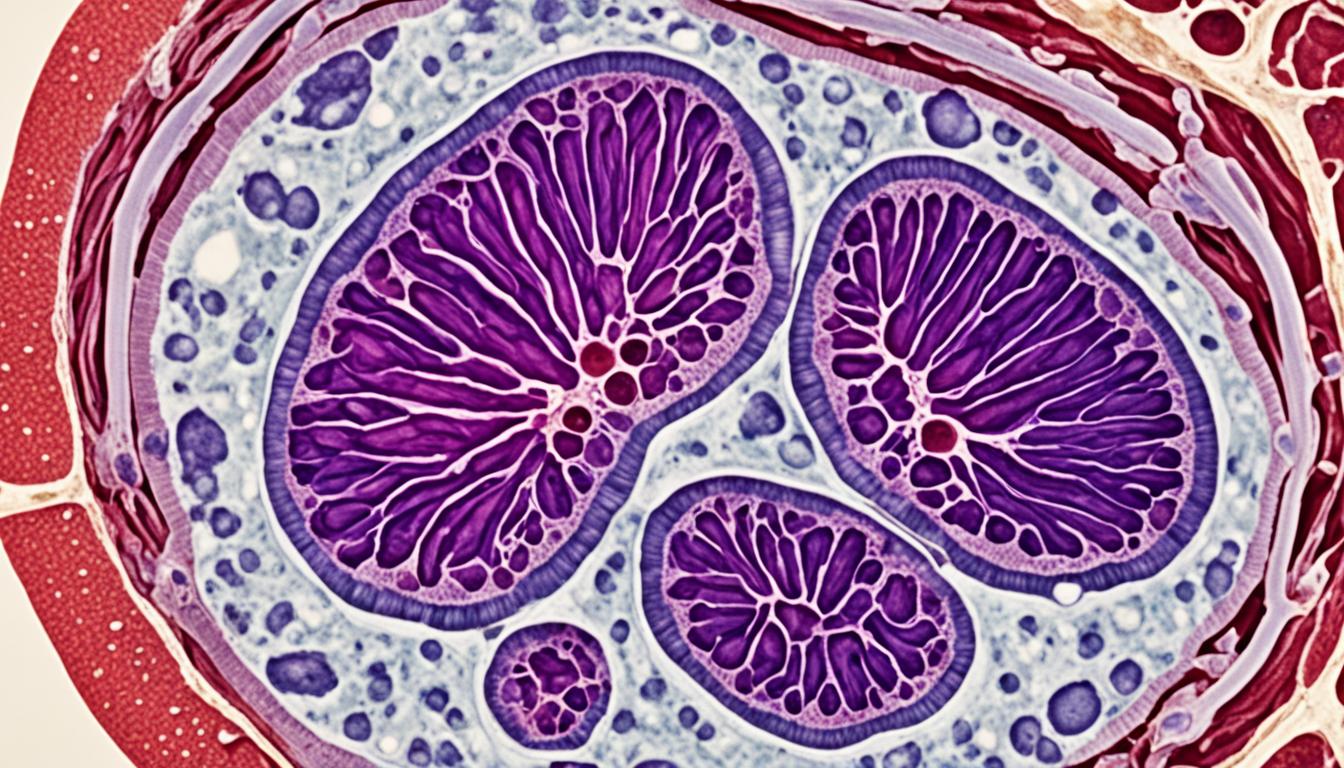Thyroid nodules are round, hard swellings inside the thyroid gland. Only 5% cause problems like neck swelling and trouble swallowing. The rest are found by chance. A detailed exam and ultrasonography provide important details. They help see the nodule’s traits and cancer risk.
The treatment plan depends on the ultrasound results. Small, low-risk nodules are watched closely. Those that look suspicious might get a needle biopsy. If a nodule is big or poses a cancer danger, surgery might be needed.
Remember, most thyroid nodules are not cancerous (95%). A very small number, just 5%, might be cancer. If your thyroid function drops or you lost your thyroid, you might need hormone treatment.
Key Takeaways:
- Thyroid nodules are round, hard swellings that occur within the thyroid gland.
- Most thyroid nodules are detected by chance and don’t show obvious signs.
- Diagnosis includes an in-depth exam and ultrasonography to check the nodules.
- Treatment varies based on the nodule’s size, appearance, and cancer risk.
- Only 5% of thyroid nodules are cancerous, meaning most are not harmful.
Understanding Thyroid Nodule Epidemiology and Pathophysiology
Thyroid nodules are quite common, affecting about 5% to 7% of adults. They’re seen more in women and those in areas lacking iodine. This shows how gender and the environment can impact their growth.
Age, being female, lacking iron, and past thyroid radiation are linked to thyroid nodules. Aging makes it more likely to develop them. So, keeping an eye out and spotting them early is crucial, especially for older people.
Different types of thyroid nodules exist. The most common ones are non-neoplastic, like adenomatous or multinodular goiters, found in about 90% of cases. These are usually benign, meaning they are not cancerous.
Neoplastic nodules can also show up, including those that might be cancerous. It’s important to carefully check and assess these nodules for cancer risk.
Doctors use techniques such as fine-needle aspiration (FNA) to look closely at thyroid cells. The Bethesda system helps in classifying what they find, guiding treatment decisions.
Examining thyroid nodules under the microscope gives clues about their types. This tells if they’re more likely to be cancer or not. Knowing this helps in planning the right treatments.
Learning about thyroid nodules’ nature and triggers is essential for doctors. This knowledge helps them care for patients better.
Advancements in Stem Cell Therapy for Thyroid Nodule Management
Stem cell therapy is making a big change in thyroid nodule care. It’s seen as a hopeful answer in regenerative medicine. A lot of studies show that different kinds of stem cells can turn into thyroid cells. They help grow new thyroid tissue.
Recent work has made real thyroid tissue from stem cells in the lab. Using 3D cultures and parts of the thyroid without cells, we’re moving forward. Now, stem cells from body fat or bone are being used. They are showing promise in fixing thyroid issues, especially from autoimmune diseases.
Using stem cells for thyroid nodules is an exciting step for better treatments. Yet, we still need more study. We want to know how well stem cell therapy can really help with thyroid problems.

